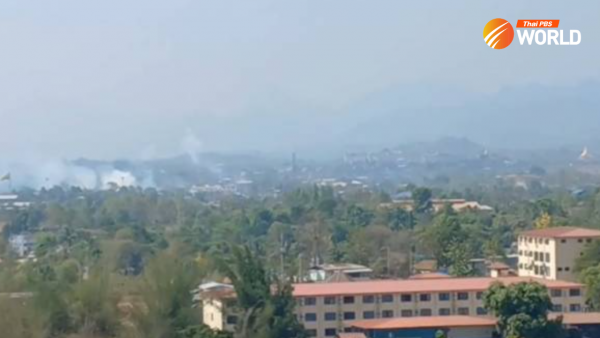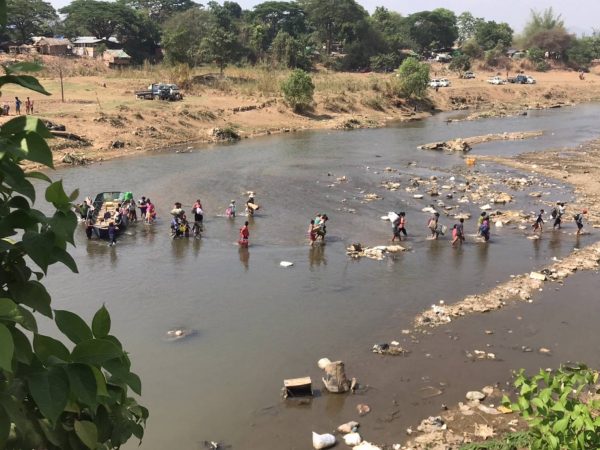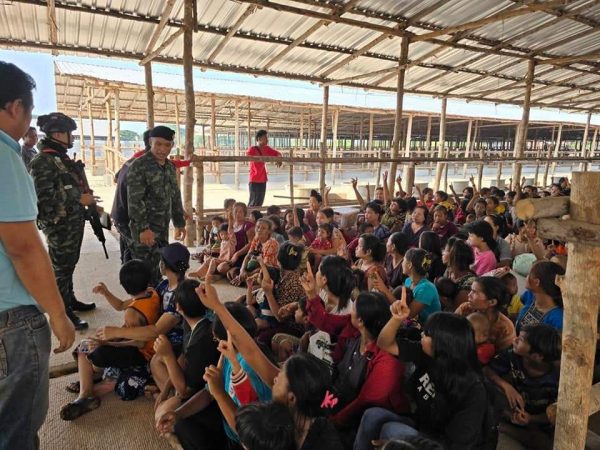Op-Ed: Thailand’s dilemma in Myanmar’s crisis

Last week Thailand joined other 35 UN members in abstaining from a major UN Security Council resolution on the situation in Myanmar. The country did so with a heavy heart because it did not have any problem with the substance and demands in the resolution proposed by Liechtenstein. However, in recognition of the reality and current Thai-Myanmar relations as well as the ongoing efforts of ASEAN to find a durable solution there, Bangkok chose to stay away.
The decision caused an uproar on social media platforms inside the country. Human rights activists and campaigners criticized the country’s failure to condemn the violence wrought by the military regime and support the democratic process in Myanmar. Among others, the resolution called for the international community to stop arms sales to the Tatmadaw, Myanmar’s military, and the release of Daw Aung San Suu Kyi including repeated calls for immediate cessation of violence. A total of 119 countries backed the resolution with Belarus as the one member supporting it.
In addition to Thailand, the other four countries (Bangladesh, India, China, and Laos) which share a border with Myanmar also did not vote on the resolution, knowing full well the longer-term implications of their actions. Given the current situation in Myanmar, bilateral contacts through common frontiers are extremely pivotal as the besieged country is under targeted sanctions.
Among the five bordering countries, Thailand’s national stake is one of the highest because it has the longest common border of 2,4016 kilometers with Myanmar, which has yet been demarcated. Thailand-Myanmar ties have recently improved dramatically during the democratization period which began in earnest in 2011. Prior to the coup, Bangkok maintained closed ties with both the civilian government under Aung San Suu Kyi and the Tatmadaw.
Over the past decade, Thailand has been assisting Myanmar in every possible way to integrate this once isolated nation with the Asean Community. Naypyidaw has done well in readjusting its economic and political systems to fit the regional setting. That explains why all Asean members, Thailand included, were flabbergasted at the seizing of power.
They turn militia when hope was lost and the killing began
What started as a largely bloodless attempt by the Tatmadaw (military) to take the reins of power in the nation, on its “correct” path, due to alleged voting fraud committed by the winning National League for Democracy (NLD), quickly erupted into a bloodbath over the span of just five months.
Be that as it may, Thailand cannot abandon Myanmar, which is currently under the control of the State Administration Council headed by Senior General Min Aung Hlaing. Together with other ASEAN members, Thailand wants to see an immediate ceasefire among warring groups, which includes some leaders of civil disobedience, so as to kick off the dialogue process and bring about national reconciliation.
Thailand also does not want to undermine the current efforts by Asean following its leaders’ meeting in late April. Therefore, Bangkok has been conducting discreet public diplomacy aimed at providing humanitarian assistance to the affected communities and individuals without preconditions. Since the coup, Bangkok has adopted a low profile but with proactive action plans to support all Myanmar stakeholders to hold a peace dialogue. For instance, through its Red Cross Society, Thailand has chalked humanitarian aid to affect Myanmar communities since the coup took place.
Over the past year (June 2020-May 2021), more than 34,000 people crossed the border from Myanmar into Thailand illegally. They crossed the border looking for jobs and health security, Once they are inside Thai territory, they will not be pushed back as pledged by Prime Minister Prayut Chan-o-cha. They can return to their villages voluntarily. Deep down, Thailand’s major concern is that if there is a prolonged civil war inside Myanmar, internally displaced persons would increase exponentially. Then they would try to make their way to the Thai border, which has an abundance of natural entry points.
At the moment, amid the pandemic, Thailand is hosting nearly 6 million migrant workers from Myanmar, half of whom have already gained legal status, which allows them access to healthcare and social benefits. The Thai government has been resilient in accommodating migrant workers so that they can remain in Thailand during this difficult time.
The crisis in Myanmar will take time to resolve. All concerned countries need to be patient as stakeholders are looking for ways to come together. Thailand will continue to pursue a role of bridge-building so that all concerned parties can get together and discuss how best to bring back normalcy and fulfill the wishes of Myanmar’s people.
by Kavi Chongkittavorn






